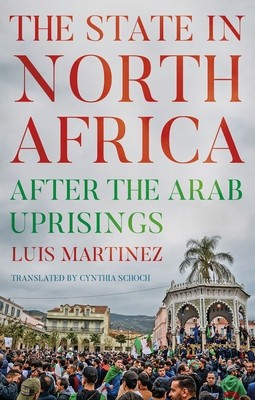
- We will send in 10–14 business days.
- Author: Luis Martinez
- Publisher: Oxford University Press, USA
- ISBN-10: 0197506542
- ISBN-13: 9780197506547
- Format: 14 x 21.8 x 2 cm, kieti viršeliai
- Language: English
- SAVE -10% with code: EXTRA
Reviews
Description
Ever since independence, revolts and riots in North Africa have structured relations between society and the state. While the state has always managed to restore order, the unexpected outbreak of the Arab Spring revolts has presented a real challenge to state stability. Taking a long-term historical perspective, this book analyses how public authorities have implemented policies to manage the Maghreb's restive societies, viewed at first as 'retrograde' and then as 'radicalised'.
National cohesion has been a major concern for post-colonial leaders who aim to build strong states capable of controlling the population. Historically, North African nations found colonial oppression to be the very bond that united them, but what continues to hold these communities and nation-states together after independence? If public interest is not at the heart of the state's actions, how can national loyalties be maintained? Luis Martinez analyses how states approach these questions, showing that the fight against jihadist groups both helps to reconstruct essential ties of state belonging and also promotes the development of a border control policy. He highlights the challenges posed by fragile political communities and weak state instruments, and the response of leaders striving to build peaceful pluralistic nations in North Africa.
EXTRA 10 % discount with code: EXTRA
The promotion ends in 22d.10:52:39
The discount code is valid when purchasing from 10 €. Discounts do not stack.
- Author: Luis Martinez
- Publisher: Oxford University Press, USA
- ISBN-10: 0197506542
- ISBN-13: 9780197506547
- Format: 14 x 21.8 x 2 cm, kieti viršeliai
- Language: English English
Ever since independence, revolts and riots in North Africa have structured relations between society and the state. While the state has always managed to restore order, the unexpected outbreak of the Arab Spring revolts has presented a real challenge to state stability. Taking a long-term historical perspective, this book analyses how public authorities have implemented policies to manage the Maghreb's restive societies, viewed at first as 'retrograde' and then as 'radicalised'.
National cohesion has been a major concern for post-colonial leaders who aim to build strong states capable of controlling the population. Historically, North African nations found colonial oppression to be the very bond that united them, but what continues to hold these communities and nation-states together after independence? If public interest is not at the heart of the state's actions, how can national loyalties be maintained? Luis Martinez analyses how states approach these questions, showing that the fight against jihadist groups both helps to reconstruct essential ties of state belonging and also promotes the development of a border control policy. He highlights the challenges posed by fragile political communities and weak state instruments, and the response of leaders striving to build peaceful pluralistic nations in North Africa.


Reviews